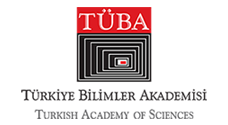Etik ve Moral Değerler Açısından Alternatif Gıda Kaynakları -Helal Ekseninde Bir Değerlendirme-

Etik ve Moral Değerler Açısından Alternatif Gıda Kaynakları -Helal Ekseninde Bir Değerlendirme-
Among the innovations that scientific and technological developments have brought into our lives are the search for alternative foods and proteins. Among these searches, cultured meat, insect protein and single cell proteins are the most important ones. These proteins are bio-technological products such as stem cells, tissue transplants and genetically modified organisms, which are produced in a highly controlled environment in the laboratory conditions to reduce the risk of foodborne pathogens. The search for alternative foods is based on the potential problems in the supply of natural foods consumed by the growing world population and the development of sustainable protein alternatives to replace them. Of course, today’s bio-technological developments will have social, economic, medical, and religious implications and problems. Since such studies are still very new, there are not enough evaluations in terms of religious, ethical, and moral values. The literature on the subject is just emerging. It is important to evaluate alternative food sources in terms of ethical and moral values. The evaluation of the issue in terms of Islamic religious principles is even more important for our country. The acceptance of alternative proteins produced with biotechnology and the determination of whether they are halal or not await research at this point. In this regard, the source of the protein, the production process, the environment, and nutrients used for their development, as well as their health status are among all the factors in determining their halal status. While there is a relatively broader framework for alternative proteins of plant origin, some alternative proteins with special conditions for eating such as cultured meat and insects can be considered risky issues in terms of Islamic criteria.

